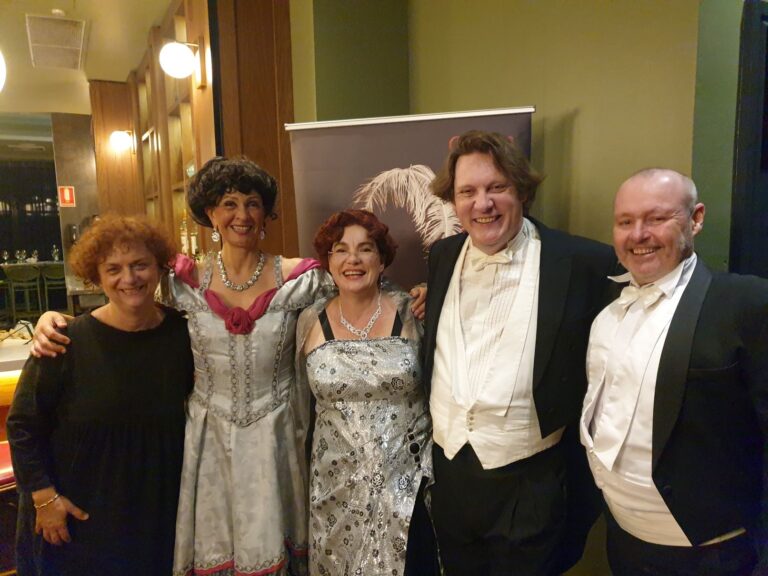
Seeing double
Autumn in Sydney is a time to get with the program.
From the Sydney Writers’ Festival program to the Film Festival to the Easter Show, highlighters take centre stage: ten or twenty film Flexipass? Two Bertie Beetle bags? Or a Kit Kat backpack?
Navigating through a well-stocked savannah of possibilities is a rush and well-trained consumers want to stalk through multiple options before the final pounce.
This year, the Sydney Writers Festival is taking a different path, shying away from the DIY menu model – where one appealing event must be carefully chosen over another – to an all-out buffet, supersizing the number of appearances each guest will make.
Would you like signings with that?
Woody Allen once said: “Eighty percent of success in life is showing up.”
And proprietor of Gleebooks, David Gaunt, who oversees all book sales at the Festival, confirms that delivering a book or personality in multiple ways to multiple audiences is a key to increasing sales.
“The sales relate to the size of the audience, if someone appears in a big event on their own then there is a good chance it will top the book sales.”
He said last year’s Festival number one bestseller, The Brief Wondrous Life of Oscar Wao, was supported by Junot Diaz’s dazzling performance at the City Recital Hall.
It could be tough to convince punters to dig deep this year, considering the current state of the economy and the resistance consumers have to spending money.
But at least one event is “sold out”, if you can describe a free event that way. Social analyst Hugh Mackay’s discussion ‘Advance Australia… where? Is it beyond our control?’ at the Pyrmont Community Centre has not a single seat left with still a month to go before the event. Mackay will also appear at three other free events.
Also full is ‘Sunday Afternoon tea and Readings’ with Geraldine Doogue, Robert Dessaix, Kate Grenville and Robert Drewe
Five more events without room at the desk are all writing and publishing workshops, ways to make money from writing, which suggests that creation may overstep consumption as the vogue for 2009
Of all those who appear at the Festival, Publishing guru Melanie Ostell, veteran of more than 20 years in the industry, leads the pack. She will appear eleven times, seven of those presenting a series of workshops on how to get a manuscript from the bottom drawer to the bookshop.
“A lot of people who take up the pen and consider writing haven’t really thought about why,’ she says. “People feel they have a story to tell, which is all good and well, but that doesn’t necessarily mean they are going to become an author.”
She denies she will go stale with so much airtime and is counting on the challenge of a variety of audiences in each of her seven workshops and other appearances.
“There’s always going to be different people with different stories, so every session will change,” she said.

Another Festival frequenter will be spoken-word poet Miles Merrill, appearing seven times, just pipping these six-timers: children’s author Morris Gleitzman; newly appointed ABC Board member and founding editor of the Griffith Review Julianne Schultz; writer, actor and broadcaster Annette Shun Wah and grammar tsar Mark Tredinnick.
Julianne Schultz, also a professor in the Centre for Public Culture and Ideas at Griffith University, will spend most of her time at the festival facilitating discussion panels with different authors. She hopes to steer them away from hardline self-promotion by encouraging wider discussion on a range of socio-political issues outside of authors’ usual areas of practice.

“It’s the big ideas forum – people looking for new ideas and new writers, and it’s my job to facilitate that debate,” she says.
Schultz emphasises the importance of organising diverse panels of writers at the Festival. “To take it to the next level, conversations are stimulating if we can get writers from as many different backgrounds as possible together on stage, listening and talking together.”
SWF spokesperson Helen Johnstone claims that increasing the number of appearances each writer will make at the Festival, rather than the number of actual writers, works for both writers and audiences.
“It is common for the major festivals to feature a writer more than once. The writers get to talk about their work and ideas in panels, in one-on-one conversation, at readings, in large venues and small, etc.
“Importantly, it also gives audiences greater opportunity to attend an event featuring a particular writer at a time that suits them,” she says
But New York- often renowned for its larger-than-life, trend-setting magnetism- is bucking the supersized literary trend this year.
Of 180 guests at the eminent PEN World Voices Festival of International Literature, only a handful will be making multiple appearances and not one guest will appear more than four times. Even Salman Rushdie only has two opportunities to shine.
How SWF’s serial speakers will maintain their spark and fill out their sessions remains to be seen. Julianne Schultz isn’t worried, likening the experience to other repetitive gigs like radio broadcasting or teaching. “You prepare, you do the work, you work out the logistics and you let it rip.”









